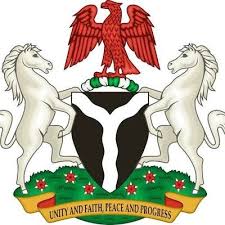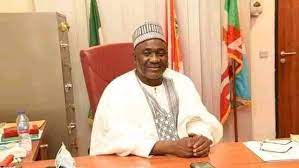News
Ease of Doing Business: Osinbajo charges MDAs to ensure implementation of NAP 7.0

As part of efforts geared towards creating an enabling environment for businesses in Nigeria, Vice president, Prof Yemi Osinbajo has charged Ministries, Agencies and Parastatals (MDAs) to ensure the implementation of reforms of the National Action Plan (NAP) 7.0 of the Presidential Enabling Business Environment Council (PEBEC).
A statement signed by the special Adviser to the President on the Ease of Doing business, Dr Jumoke Oduwole revealed that Prof. Osinbajo stated this at the presidential villa, when he received the progress report of the Council after the ongoing NAP 7.0 reached mid-way point (30 days) in its 60-day cycle.

NAP 7.0 is the 7th in the series of a 60-day accelerator, designed to coordinate the effective delivery of priority reforms of selected MDAs annually to deliver key reforms under five categories namely; trade/port reforms, automation reforms, regulatory reforms, legislative/judiciary reforms and Executive Order 001/Reportgov.ng tracking and compliance.
PEBEC had commenced NAP 7.0 on February 7 to drive the implementation of these key reforms and as at day 30(March 8) of the NAP 7.0, the reforms had a 22 percent completion rate.
The Vice president in the statement stressed the need for a business friendly environment that will attract investors and business owners while creating jobs and reducing poverty for citizens.
“We’re at a very critical stage, we’re losing money and there is need to create an environment that allows business to be held” Prof Yemi Osinbajo said.
While the vice president noted that the mid-term report is very detailed to the specific issues, he urged for urgency in addressing them.
Referencing the commitment of the Buhari administration to improving the economy, the VP stated that implementing “these reforms are vital” towards further improving the country’s business environment.
“This is why we must have these reforms. It is also important that all the procedure reforms can be put in place. At meetings like this, issues that should be resolved are escalated for onward resolutions; and those things that need to be done have to be done,” he said.
Prof Osinbajo also stated that an outline of the escalations would be included in a document, and that a contact would be made with the Ministries, Departments, and Agencies that operate as a constraint on the ongoing NAP 7.0 progress.
It would be recalled that the Vice President had stated during the PEBEC 5th anniversary event in December 2021 that a more aggressive accountability audit of various Federal Government agencies will be undertaken so as to identify and remove bureaucratic bottlenecks.
In her presentation, Special Adviser to the President on Ease of Doing Business, Dr. Jumoke Oduwole, pointed out that there are 58 reforms for implementation under NAP 7.0 which will run from 7th February to 7th April 2022.
“So, we really need to drill down on those escalations and to hold agencies accountable and to encourage them to push more to deliver these reforms for Nigerians,” she stated.
The Council however appeal to the Nigerian Ports Authority (NPA) , Nigeria Customs Service (NCS) , and Nigerian Export Promotion Council (NEPC) to make linkage easier for exporters and reduce the cumbersome delays and expensive costs in delivering goods.
Representatives from the Nigerian Shippers Council (NSC) and the National Ports Authority called for the checkpoints to be reduced since they are a barrier to exporters.
The National Action Plan was introduced for the first time in February 2017 and has since become a signature homegrown 60-day accelerator and reform tool designed by PEBEC to coordinate the effective delivery of priority reforms of select ministries, departments and agencies annually.

























